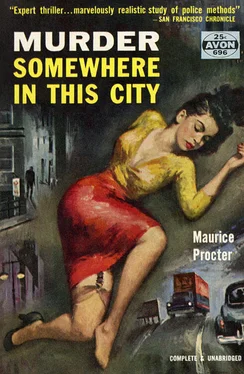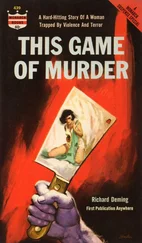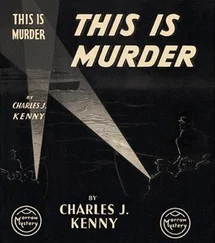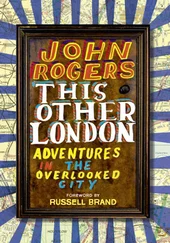Maurice Procter - Murder Somewhere in This City
Здесь есть возможность читать онлайн «Maurice Procter - Murder Somewhere in This City» весь текст электронной книги совершенно бесплатно (целиком полную версию без сокращений). В некоторых случаях можно слушать аудио, скачать через торрент в формате fb2 и присутствует краткое содержание. Год выпуска: 0101, Издательство: Avon, Жанр: Полицейский детектив, на английском языке. Описание произведения, (предисловие) а так же отзывы посетителей доступны на портале библиотеки ЛибКат.
- Название:Murder Somewhere in This City
- Автор:
- Издательство:Avon
- Жанр:
- Год:0101
- ISBN:нет данных
- Рейтинг книги:5 / 5. Голосов: 1
-
Избранное:Добавить в избранное
- Отзывы:
-
Ваша оценка:
- 100
- 1
- 2
- 3
- 4
- 5
Murder Somewhere in This City: краткое содержание, описание и аннотация
Предлагаем к чтению аннотацию, описание, краткое содержание или предисловие (зависит от того, что написал сам автор книги «Murder Somewhere in This City»). Если вы не нашли необходимую информацию о книге — напишите в комментариях, мы постараемся отыскать её.
Murder Somewhere in This City — читать онлайн бесплатно полную книгу (весь текст) целиком
Ниже представлен текст книги, разбитый по страницам. Система сохранения места последней прочитанной страницы, позволяет с удобством читать онлайн бесплатно книгу «Murder Somewhere in This City», без необходимости каждый раз заново искать на чём Вы остановились. Поставьте закладку, и сможете в любой момент перейти на страницу, на которой закончили чтение.
Интервал:
Закладка:
In the middle of the ring a fresh-faced young fellow was saying: “I’ll head ’em for four,” and there were four one-pound notes in the hands of the sturdy, red-faced man who stood beside him.
“Has he done it twice?” Bill Bragg inquired, and the reply was an envious “That’s right, chum,” from a shabby, gaunt, colorless man who looked as if he ought to be spending his cash-in-hand on a good meal. Evidently the challenger had started with a one-pound bet. He had won twice, leaving stakes and winnings in the ring.
“I’ll have a nicker on,” said Bill, making up his mind quickly, and feeling proudly resolute because he had done so. He handed a note to the red-faced man, who took it and nodded in acknowledgment. The colorless man, after a moment of obviously painful indecision, risked a pound himself. Then Lolly Jakes and Doug Savage stepped forward together, each offering two pounds to the stakeholder.
The stakeholder, whose remuneration largely depended upon tips from the day’s winners, wanted to make no enemies. “Now then,” he said with a dry grin. “Whose money shall I take?”
“I was first,” said Doug.
“Nay, I’m damned if you were,” Lolly retorted.
The two men eyed each other; measured each other. They were both burly men; the innkeeper clean and almost dapper in appearance, the other carelessly dressed. The onlookers watched them with interest.
Nearly all gamblers have ideas about the fickleness of luck. Any small incident might affect luck or point the way to the avoidance of misfortune. And one lucky bet might change the whole day’s fortunes. Therefore it became important to both Doug and Lolly that they should make that particular bet. It seemed to each of them that the other was blocking his way to an important initial success.
“Split it. Have a quid apiece on,” the stakeholder suggested.
“Fair enough,” Lolly agreed.
“I was first,” said Doug stubbornly.
“Spin a coin for it,” somebody advised.
The disputants shook their heads. Such a course might put a hoodoo on the bet.
“Well, do summat!” the challenger snapped, because he was afraid that the delay might be allowing his luck to change.
“A quid apiece,” said Lolly, and there was a general murmur of approval for this compromise.
Doug shook his head obstinately. He thought that he should make the bet. To split with Lolly Jakes, whom he disliked, seemed as if it would be an unlucky thing to do.
But he could see that Lolly’s reasonable offer had popular support, and the deadlock had to be broken. “I was first,” he said sulkily. “But go on. Put your brass on seeing as you’re so keen. We’ll see what happens.”
Grinning, Lolly handed his two pounds to the stakeholder. Then the challenger stepped out into the middle of the ring and held out his right hand palm upward. The forefinger and the long finger were straight, held close together. The other two fingers were bent, and held by the thumb. The “putter-on” carefully placed two halfpennies, “heads” upward, on the outstretched fingers. The challenger threw, and the two coins went almost exactly straight up into the air, spinning side by side, and to the naked eye spinning in perfect unison.
It was a bad throw. The coins showed one “head” and one “tail” when they landed on the ground. It was a void toss. The challenger threw again, and the coins showed two tails. He had lost his four pounds. With evident satisfaction Bill Bragg, Lolly, and the colorless man stepped forward to collect their winnings.
As Lolly held out his hand for his money, Bill noticed that his fingers were stained green. Because they were dirty they did not seem to be quite the same color as Gus Hawkins’, but green they undoubtedly were. Bill wondered foggily about that, but in spite of his visit to Hallam and the green-handed thief he had seen there, his childlike mind did not perceive any suspicious connection.
Doug Savage was furious. According to his way of thinking, he had been robbed of two pounds. He took a folded five-pound note from the fob pocket of his trousers, and handed it to the stakeholder, who uncreased it reverently.
“I’ll head ’em for a fiver,” Doug rasped, and glared at Lolly. The challenge was obvious and, to those men standing around, it was rightfully given. Lolly had to accept it, or be considered a timorous man. He simply nodded, and gave five pounds to the stakeholder.
Doug was a skillful tosser. He threw, and “headed ’em” at the first attempt.
“Leave it in the ring,” he said to the stakeholder, and he looked at Jakes.
Lolly nodded again, and fumbled in his trousers pocket. He brought out a small handful of pound notes, and counted off ten for the stakeholder.
Doug threw again, and won. “Leave it,” he said, grinning widely now. Everyone waited to see what Lolly would do. They did not have to wait long. He was counting off twenty pounds for the stakeholder.
Doug won again, and laughed in exultation. He was a good gambler who would ride with his luck, and he had a great contempt for men who grew cautious or timid when they were winning, only to plunge wildly to regain losses when the luck was against them.
“Leave it,” he said confidently. There were forty pounds in the ring, only five of which had belonged to him. He looked around at the spectators, because he did not think that Lolly would have a further forty pounds with which to gamble. But the men waited. They also thought that Lolly would be unable to “cover” the bet, but they expected that he would partly cover it with what money he had.
Lolly did indeed give the impression that he was nearly at the end of his financial resources. He was fishing in his match pocket and bringing out folded fivers one at a time, and handing them, one at a time, to the stakeholder. The stakeholder unfolded each one, and solemnly counted.
“Seven… Eight,” he said. “Eight fives is forty. Your bet’s covered, Doug.”
In the face of such determination Doug began to look serious. But neither his luck nor his skill was affected, because he tossed and won again.
“Eighty quid!” he cried exuberantly. “Oh boy, rags to riches!”
It was obvious that he intended to leave the money in the ring, but the spectators again waited to see what Lolly would do. Bill Bragg stared at him blankly, with his mouth open. That was a fairly normal expression for all occasions. He was greatly excited by the betting, but he was incapable of showing his excitement.
“Come on, come arn!” Doug urged the “school.”
“Put your money on the drum. You come in rags and go away in Rolls-Royces.”
Lolly Jakes showed no disappointment. His face was stolid, though his little eyes glinted. He began to fumble in his trousers pocket again, but someone who had appeared at his side put a hand on his arm to arrest the action of bringing out money. The newcomer was Laurie Lovett, who had been standing quietly in the crowd. Also from the crowd Clogger Roach appeared, and he looked at Jakes with hostility.
It occurred to Bragg, and to other men standing near, that Jakes had been gambling with money which did not belong to him. It was a reasonable conclusion. Jakes had been at various times a runner for any small-time bookmaker who would employ him. It looked as if he had found another employer, and that he was now wagering money which had been entrusted to him to pay out some people who had betted successfully on yesterday’s racing. If it were his own money, there seemed to be no reason for Laurie Lovett to interfere.
Aware of listeners, Lovett said in a low, hard voice: “Don’t be a fool, Lolly. You’ve lost enough. You’re backing your bad luck. Play small till it changes.”
“I’m not going to let this big swaggering sod get away with my money,” was the dogged reply.
Читать дальшеИнтервал:
Закладка:
Похожие книги на «Murder Somewhere in This City»
Представляем Вашему вниманию похожие книги на «Murder Somewhere in This City» списком для выбора. Мы отобрали схожую по названию и смыслу литературу в надежде предоставить читателям больше вариантов отыскать новые, интересные, ещё непрочитанные произведения.
Обсуждение, отзывы о книге «Murder Somewhere in This City» и просто собственные мнения читателей. Оставьте ваши комментарии, напишите, что Вы думаете о произведении, его смысле или главных героях. Укажите что конкретно понравилось, а что нет, и почему Вы так считаете.












